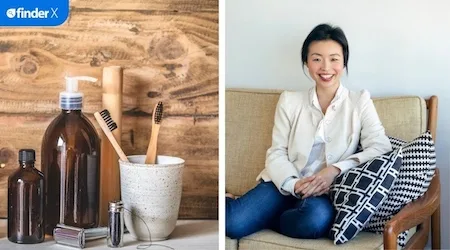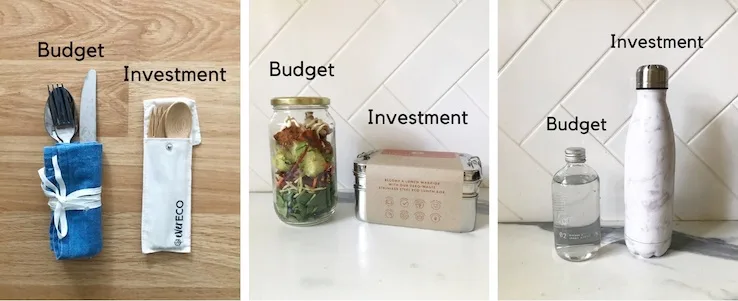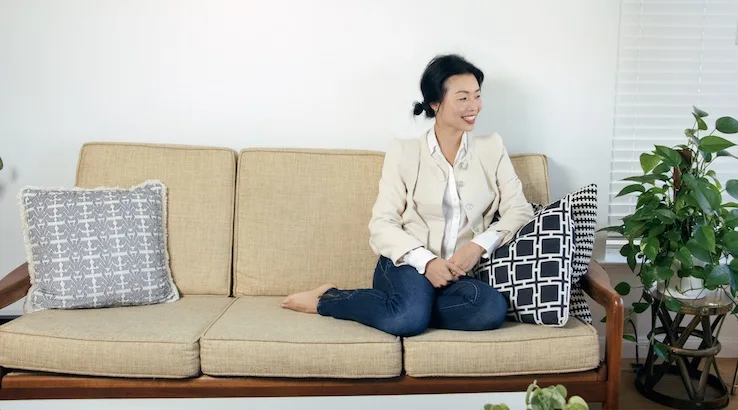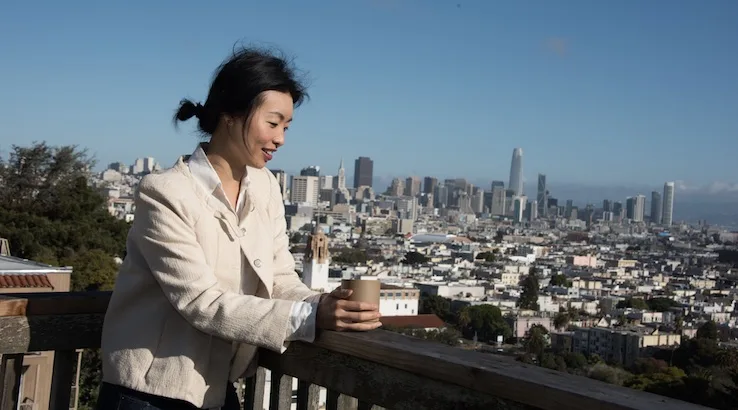How to live a zero-waste life with zero budget

Does a no-waste life have to be expensive? Zero waste expert Anita Vandyke shares her top tips on reducing your waste without blowing your budget.
Zero-waste living is currently trending on social media, with its calm and neutral aesthetics seducing people into a lifestyle that looks and feels good. While the minimalist and natural aesthetic is beautiful to photograph, living a zero-waste life is more than just a trend.
It's about valuing your resources and reducing your environmental footprint on the planet. Despite the mass marketing that comes with any trend, zero-waste living does not have to (literally or metaphorically) cost the earth.
So, here are my top tips on how to live a zero-waste life with zero budget:
1. Budget vs investment options

Zero-waste living, fundamentally, should be about using up what you have before you buy anything new. This means making use of all your old plastic containers, using them for their full life span, recycling them responsibly and then buying "new" when needed. Some great budget options for putting together a zero-waste kit include:
- Instead of buying a reusable coffee cup use an old jar and cover with elastic bands to make it heatproof.
- Instead of buying stainless steel containers use wide mouth jars to store salads and other foods.
- Instead of buying a stainless steel drink bottle use a jar with a tight lid.
- Instead of buying a bamboo cutlery kit use the cutlery you have at home and wrap with a cloth napkin.
There are so many simple swaps that you can make with items that you already have in your home – there's no need to rush out and buy anything new. You need to find what suits your lifestyle, and if you do need to buy something new, you can save up for a quality item to replace your old ones.
2. Be a conscious consumer

Before I succumb to the dopamine hit that comes with a new purchase, I go through the hierarchy of buying. This is a series of questions I ask myself to help decide if I should make a purchase:
- Can I make do with something I already have?
- Can I borrow it from a friend or community group?
- Can I buy it second-hand?
- Can I buy it from an ethical product maker?
The key to being a conscious consumer is to be mindful of where your money goes. The easiest way to exercise our democratic rights is to vote with our dollars. Do you want your money to go to fast fashion companies in which people are dying to make your clothes? Do you want to support brands that pollute our waterways and leech toxic chemicals into our soil? The answer is (usually) no.
We want to feel good about our purchases and the simplest way to live more mindfully is to put your money towards causes that align with your values. To do this, we have to respect our resources and focus on second-hand options first. The most sustainable choice is always using materials that already exist rather than using virgin materials to make something new.
We also have to do our research on the brands we are supporting. Goodonyou is an app that rates popular brands on how ethical and eco-friendly they really are. It's a great place to start your research.
By going through the hierarchy of buying, you not only save money, but you also feel good about your purchases. Win-win.
3. Get outdoors

My favourite tip for saving money while living a zero-waste life is to get outdoors. We are so lucky to live in a country that has beautiful landscapes – white sandy beaches, beautiful bushland and excellent hiking spots. And most importantly, these places are free.
Instead of spending your lunch break shopping, why not sit in your local park and enjoy some vitamin D? Instead of spending your weekends wasting your money on unnecessary purchases, why not grab a few friends and go for a hike instead? This is a great way to save money and also see the great outdoors.
Spending time outside allows you to see what you're fighting for. You can also see how the small changes you are making in your everyday life will have a compounding effect that not only improves your quality of life, but also the life of the planet.
Zero-waste living is about more than just aesthetics – it's about living a life that is in alignment with your values. Zero-waste living is not about deprivation or sacrifice. In fact, it has allowed me to live a life of luxury, a life of happiness, a life that isn't wasted.
Listen to Anita Vandyke talk more about zero-waste living
Anita Vandyke is a qualified rocket scientist (she graduated with a Bachelor of Engineering in Aeronautical Space) and runs a successful Instagram account about zero-waste living. She currently splits her time between studying medicine in Sydney and living with her husband in San Francisco. She regularly blogs about her passion for zero-waste switches, minimalism, travel and all things green living at www.anitavandyke.com. Anita's first book A Zero Waste Life: In Thirty Days ($19.99) is published by Penguin Random House.
Disclaimer: The views and opinions expressed in this article (which may be subject to change without notice) are solely those of the author and do not necessarily reflect those of Finder and its employees. The information contained in this article is not intended to be and does not constitute financial advice, investment advice, trading advice or any other advice or recommendation of any sort. Neither the author nor Finder have taken into account your personal circumstances. You should seek professional advice before making any further decisions based on this information.
Read more Finder X columns
-
All the big savings account interest rate rises: ING, AMP, Westpac + more
6 Feb 2026 |
-
Australian credit card debt soars 10% in a year: How can you escape the trap?
6 Feb 2026 |
-
4 cashback home loan offers to ease the pain of RBA rate hike
4 Feb 2026 |
-
Finder’s RBA Survey: Easing cycle ends as RBA delivers first rate hike since 2023
4 Feb 2026 |
-
Ubank Save is increasing its bonus rate up to 5.35% p.a.
3 Feb 2026 |
Ask a question
